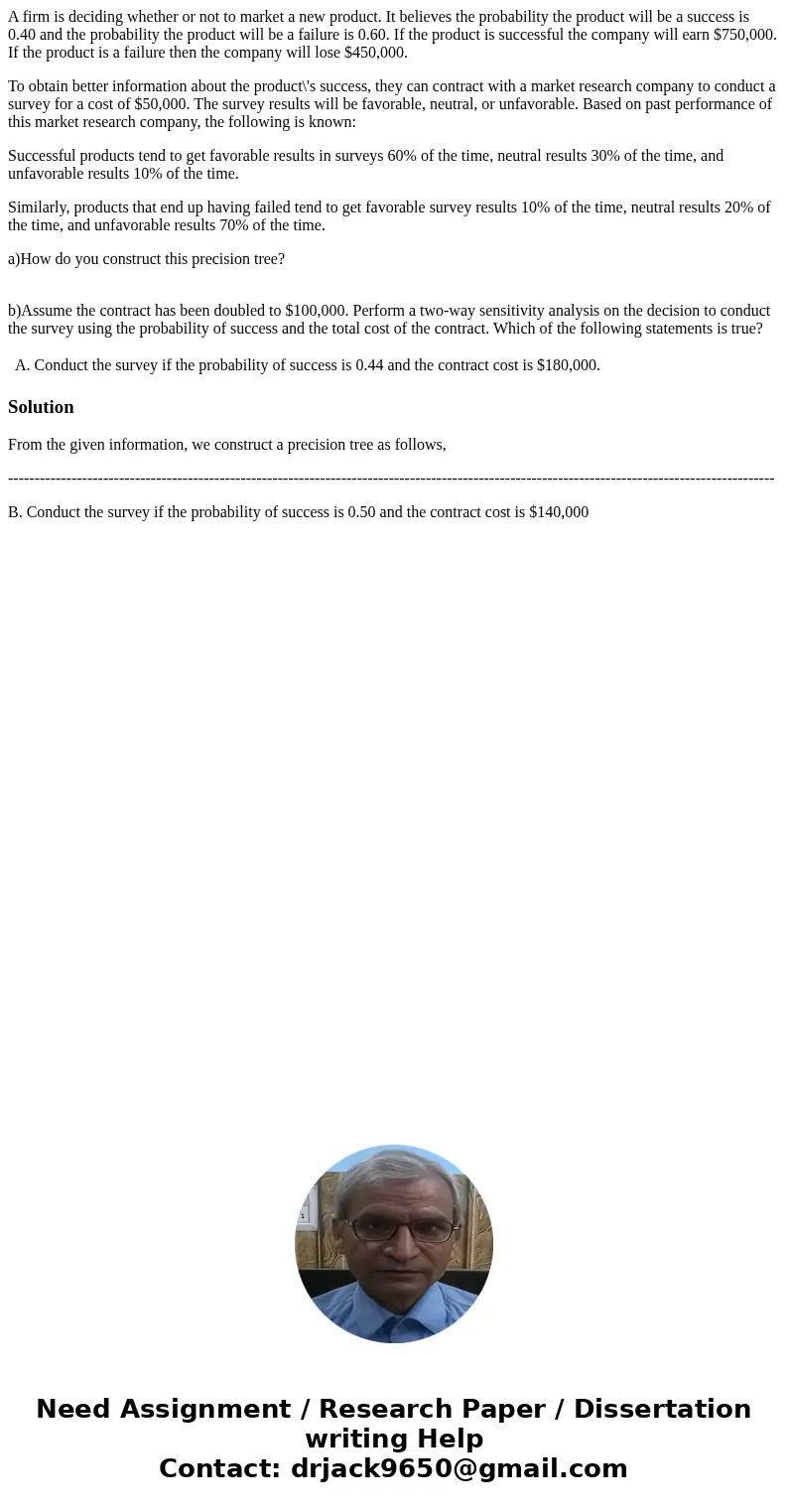A firm is deciding whether or not to market a new product It
A firm is deciding whether or not to market a new product. It believes the probability the product will be a success is 0.40 and the probability the product will be a failure is 0.60. If the product is successful the company will earn $750,000. If the product is a failure then the company will lose $450,000.
To obtain better information about the product\'s success, they can contract with a market research company to conduct a survey for a cost of $50,000. The survey results will be favorable, neutral, or unfavorable. Based on past performance of this market research company, the following is known:
Successful products tend to get favorable results in surveys 60% of the time, neutral results 30% of the time, and unfavorable results 10% of the time.
Similarly, products that end up having failed tend to get favorable survey results 10% of the time, neutral results 20% of the time, and unfavorable results 70% of the time.
a)How do you construct this precision tree?
b)Assume the contract has been doubled to $100,000. Perform a two-way sensitivity analysis on the decision to conduct the survey using the probability of success and the total cost of the contract. Which of the following statements is true?
| A. Conduct the survey if the probability of success is 0.44 and the contract cost is $180,000. |
Solution
From the given information, we construct a precision tree as follows,
-------------------------------------------------------------------------------------------------------------------------------------------------
B. Conduct the survey if the probability of success is 0.50 and the contract cost is $140,000

 Homework Sourse
Homework Sourse